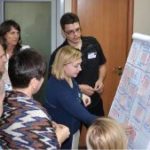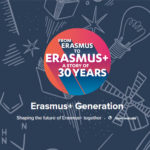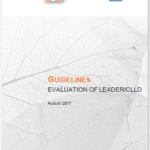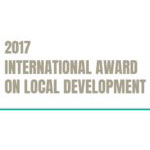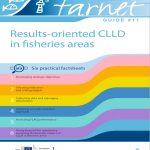This International Summer Course on Public Participation, Stakeholders’ Engagement, Co-Creation Methods offers active learning and new insights while performing an intense immersion in theory and practice of Active Participation Processes. It is highly interactive and appropriate to gain competencies to better intervene in EU and other projects. Organised by Mediatedomain and takes place from 6 […]
LDnet research initiative: CLLD and the circular economy
In its efforts to build close links with research in aspects of local development LDnet has entered an Erasmus+ agreement with HAWK Göttingen University and one of its post-graduate students, Yasin Akkoub, has worked from July to September 2017 as a placement with LDnet, hosted by the FARNET. The main focus of Yasin’s research was […]
Evaluating CLLD: new guidance
The European Evaluation Helpdesk for Rural Development has published guidelines on the evaluation of LEADER/CLLD. This is a non-binding document, which serves to complement the legal requirements relating to LEADER/CLLD evaluations. The document clarifies the common elements related to LEADER/CLLD evaluations and gives a wider set of recommendations on how to formulate and manage LEADER/CLLD evaluations, […]
Upcoming events and other activities of the Regional Studies Asociation
The Regional Studies Association (RSA) is a global forum for city and regional research, development, and policy. Its networks span more than 20,000 academics, policymakers and practitioners who care about regional and urban economic development. Every year, the RSA organises a number of events and in 2016 alone these events brought together over 3,700 delegates […]
International award on local development
The 2017 International Award on Local Development is an international competition for the recognition of relevant research contributions and successful initiatives in promoting and supporting local and territorial development, particularly important and distinctive at international level. It aims to encourage scholars, experts, young researchers, public institutions, public and private actors and businesses to improve awareness […]
ELARD events in 2017
The European LEADER Association for Rural Development (ELARD) is an international non-profit making association set up to improve the quality of life in rural areas and to maintain their population through sustainable, integrated local development. ELARD supports its members (national LEADER networks) directly in their efforts to carry out innovative work in the field of […]
The Tartu Declaration: Renewing LEADER/CLLD for 2020+
The European LEADER association ELARD has drawn up a declaration on LEADER/CLLD for the 2021-2027 programming period. The declaration takes into focus the LEADER approach that should again turn its face toward its main purpose – the empowerment of local communities. The key principles of the LEADER method have to be re-asserted and treated with […]
Urban Innovative Actions
Urban Innovative Actions (UIA) is an Initiative of the European Commission that provides urban areas throughout Europe with resources to test new and unproven solutions to address urban challenges. Based on Article 8 of ERDF, the Initiative has a total ERDF budget of EUR 372 million for 2014-2020. The UIA supports local authority led projects […]
New CLLD publications by FARNET
Two new FARNET publications are of general interest to CLLD. ‘Starting CLLD implementation in practice’ presents examples of applying CLLD under the different ESI Funds and shows different methods of integrating the EU Funds at the local level. ‘Results-oriented CLLD in fisheries areas’ offers six factsheets, including real-life examples, designed to help FLAGs ensure better […]
Bibliography on community development
| Bibliography community development The renewal of community development and community economic development, in countries such as the UK, Ireland and the Nordic countries had the same origin as Local Employment Initiatives and endogenous development action or, in some countries with social economy and local inclusion initiatives. It has been subject to research, surveys and […]
Le manque de régionalisation perdure en France
Interview with Marjorie Jouen – in French – about Cohesion policies over the last 20 years, based on her book on La politique européenne de cohésion
ACTIVITÉS ET PRODUCTIONS DES PACTES LOCAUX
1 – Documents depuis 1998 2 – Site de travail depuis 2009 dans un partenariat avec ALOE (Alliance pour une Economie Responsable Plurielle et Solidaire) accessible en français, anglais, espagnol : Principales références 1998 : Manifeste fondateur http://pactes-locaux.org/bdf/docs/bip-3619-1_manifeste_pactes_locaux.pdf 2001 : Dossier d’expériences : Des alliances pour des territoires innovants et solidaires 2004 : Cahier des […]
